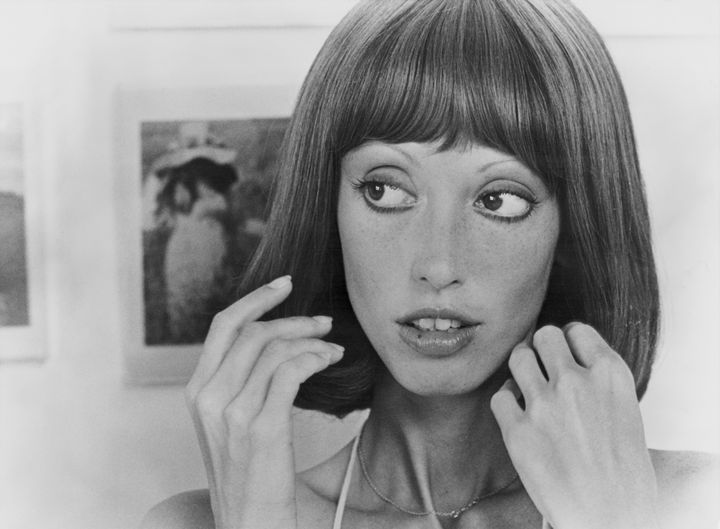Shelley Duvall, best known for co-starring with Jack Nicholson in Stanley Kubrick’s horror classic “The Shining,” died Thursday, The Hollywood Reporter has confirmed. She was 75.
The actor died in her sleep of complications from diabetes at her home in Blanco, Texas, the outlet reported.
“My dear, sweet, wonderful life partner and friend left us,” musician Dan Gilroy, who had a decades-long relationship with Duvall, said in a statement to THR. “Too much suffering lately, now she’s free. Fly away, beautiful Shelley.”
Stanley Bielecki Movie Collection via Getty Images
Duvall was one of the biggest film stars of the 1970s and ’80s, charming audiences with her versatile acting chops, rail-thin physique, toothy smile and quirky personality.
Famed film critic Roger Ebert wrote in 1980 that Duvall “looks and sounds like almost nobody else … [and] has possibly played more really different kinds of characters than almost any other young actress of the 1970s.”
He added: “In all of her roles, there is an openness about her, as if somehow nothing has come between her open face and our eyes — no camera, dialogue, makeup, method of acting — and she is just spontaneously being the character.”
Despite such acclaim, Duvall hadn’t intended to become an actor.
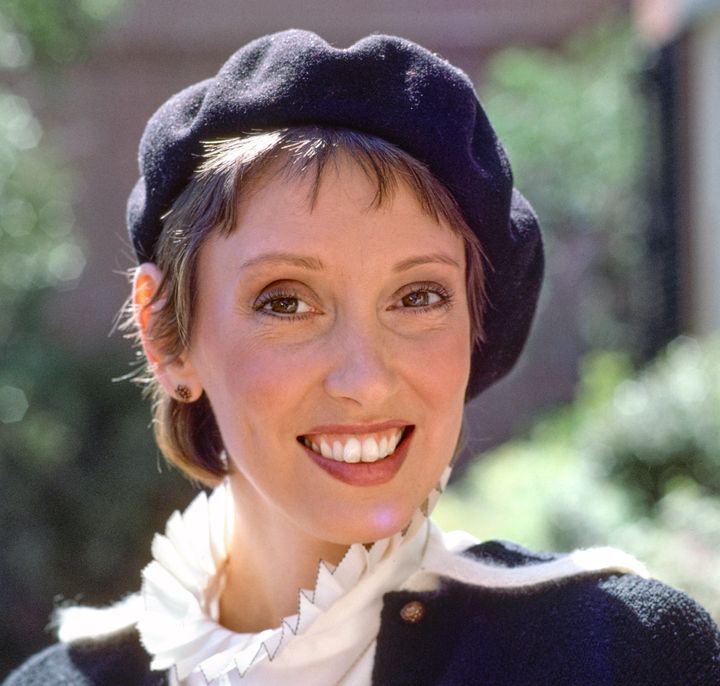
CBS Photo Archive via Getty Images
She was discovered while throwing a party to sell her husband’s artwork, and crew members from the 1970 movie “Brewster McCloud” happened to be in attendance. Instantly taken by Duvall, they put her in touch with the film’s director, Robert Altman — who had a reputation for making oddball movies. Altman was as intrigued by Duvall as his staff, and he soon cast her in his dark comedy despite her lack of experience.
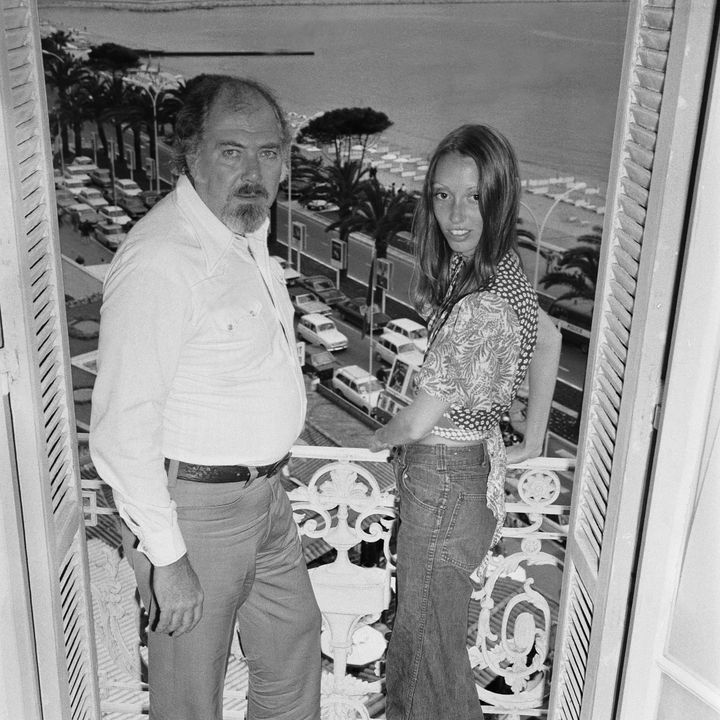
Gilbert TOURTE via Getty Images
Duvall went on to star in numerous projects led by Altman, including 1971′s “McCabe & Mrs. Miller” and 1974′s “Thieves Like Us.” Her breakout role came in the cult classic 1975 film “Nashville,” and she earned widespread acclaim with the 1977 drama “3 Women,” which won her the Cannes Film Festival Award for Best Actress and a BAFTA Awards nomination. The same year she starred in “3 Women” she also had a supporting role in Woody Allen’s “Annie Hall” and hosted “Saturday Night Live.”
Altman later cast Duvall in the 1980 film “Popeye,” which featured Robin Williams in the titular role. Duvall co-starred as Olive Oyl — a part she was seemingly born to play.
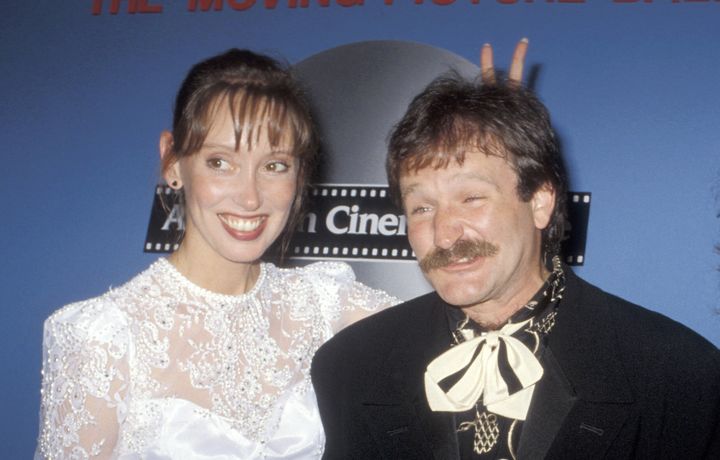
Ron Galella via Getty Images
Yet most will remember Duvall for her turn as Wendy Torrance in Kubrick’s 1980 film adaptation of Stephen King’s novel “The Shining.” Duvall played the besieged wife of writer Jack Torrance (Nicholson). In the film, the couple moves to the desolate Overlook Hotel with their young son, Danny (Danny Lloyd), to act as its caretakers while Jack works on his writing. During a long, harsh winter, Wendy fears for her and her son’s safety as Jack slowly succumbs to madness linked to supernatural forces lurking in the hotel.
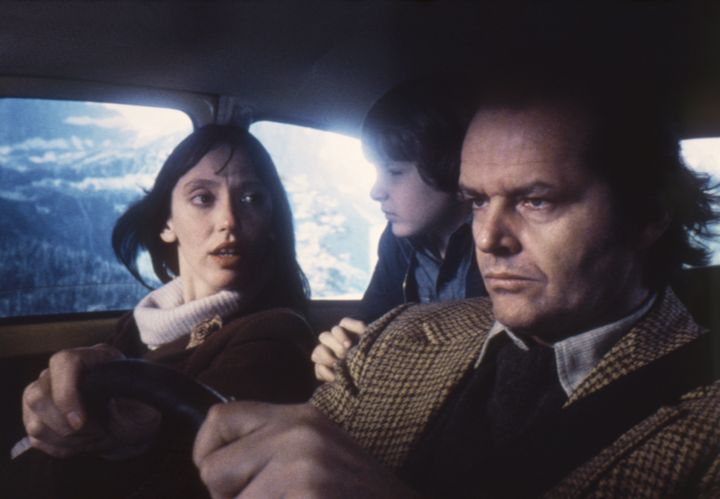
Sunset Boulevard via Getty Images
Duvall’s performance in the film was initially panned by critics. But years later, after reports emerged about Kubrick’s harsh treatment of the actor on set, many began to view it in a different light.
In a 1981 interview with People, Duvall said that Kubrick had her “crying 12 hours a day for weeks on end.”
“I will never give that much again,” she told the magazine at the time. “If you want to get into pain and call it art, go ahead, but not with me.”
Duvall also headed her own production company, Think Entertainment, which created star-studded family entertainment for cable television and earned her two Emmy Award nominations. Notable children’s shows she produced included “Faerie Tale Theatre,” “Tall Tales & Legends” and “Shelley Duvall’s Bedtime Stories.”
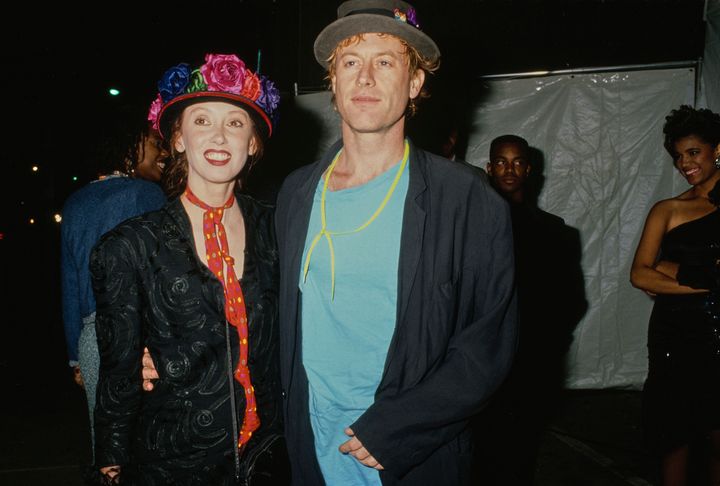
Vinnie Zuffante via Getty Images
She met Gilroy in 1989 while they acted together in the 1990 Disney Channel movie “Mother Goose Rock ‘n’ Rhyme.”
Before settling down with him, Duvall had dated musician Paul Simon, whom she met while filming “Annie Hall.” The two lived together in New York City until Simon dumped her for Carrie Fisher, his future wife.
Duvall eventually fled Hollywood in the 1990s for her native Texas, and faded into obscurity.
That was until an infamous appearance on “Dr. Phil” in a 2016 episode titled “A Hollywood Star’s Descent Into Mental Illness.” In the interview, a seemingly disheveled Duvall told host Phil McGraw that she believed her “Popeye” co-star Williams, who died by suicide in 2014, was still alive and was a shape-shifter. She also told McGraw: “I’m very sick. I need help.”
The interview was later criticized by many, including actor Mia Farrow, as being exploitative of someone with a mental health condition.
In 2021, Seth Abramovitch of The Hollywood Reporter sought out the reclusive Duvall in her Texas hometown, and wrote an intimate profile on the actor in which he noted that he “found her memory to be sharp and her stories engrossing.”
Abramovitch also wrote that Duvall appeared “visibly distressed” by the mention of McGraw’s name.
“I found out the kind of person he is the hard way,” Duvall told the journalist, referring to McGraw. “My mother didn’t like him, either. A lot of people, like Dan [Gilroy], said, ‘You shouldn’t have done that, Shelley.’” Duvall also told THR that McGraw attempted numerous times to make contact with her following the backlash to his “Dr. Phil” episode, and that he called her mother “all the time.”
After news broke of Duvall’s death, fans paid tribute to her on social media. Among them was director Edgar Wright, who called her “an incredible screen presence” who “burned up the screen in many funny, intense and idiosyncratic roles.”

